The characteristics of critical and creative thought
- Critical thinking as a subject is an extensive subject that can not be adequately explained. The characteristics are followed (Harrington & Terry, 2009).
- Critical thinking and creative thought are reasonable and rational.
- Critical thinking and creative thought are also reflective in nature.
- Critical thinking and creative thought generate a behavior of inquiry (Chesters, 2012).
- Critical thinking and creative thought are an independent thinking.
- Critical thinking and creative thought work hand in hand.
Critical thinking and creative thought are considered to be reasonable and creative because creative and critical thinkers are always slow to jump into conclusion. They observe and analyze the given facts before making a judgment towards the issues at hand (Harrington & Terry, 2009).
Secondly, critical thinking and creative thoughts are also reflective as one making a decision based on a matter has to weigh the history and the outcomes of the decisions before taking any further steps (Brookhart, 2010).
Critical thinking and creative thought generates a behavior of inquiry because when one thinks of the what, when, why and where of a problem then multiple solutions and questions are bound to be raised in the process.
In addition, the two are considered to be independent because thoughts or questions raised by a critical thinking are always personal opinions that are not shared with others. Moreover, when a decision or idea is raised, it always becomes difficult to manipulate a critical thinker to sway proposed opinion as in most cases the mind is always made up (Chesters, 2012).
Critical thinking and creative thought also work in harmony as through the process of critical thinking does one acquire a creative thought.
Critical thinking and creative thought generates a behavior of inquiry because when one thinks of the what, when, why and where of a problem then multiple solutions and questions are bound to be raised in the process.
In addition, the two are considered to be independent because thoughts or questions raised by a critical thinking are always personal opinions that are not shared with others. Moreover, when a decision or idea is raised, it always becomes difficult to manipulate a critical thinker to sway proposed opinion as in most cases the mind is always made up (Chesters, 2012).
Critical thinking and creative thought also work in harmony as through the process of critical thinking does one acquire a creative thought.
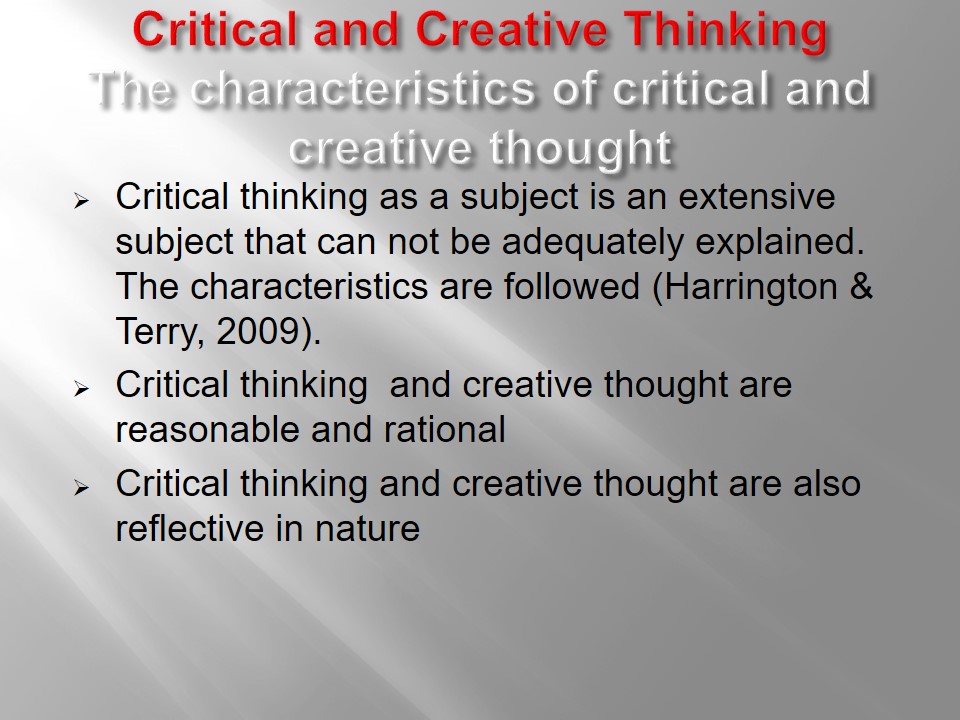
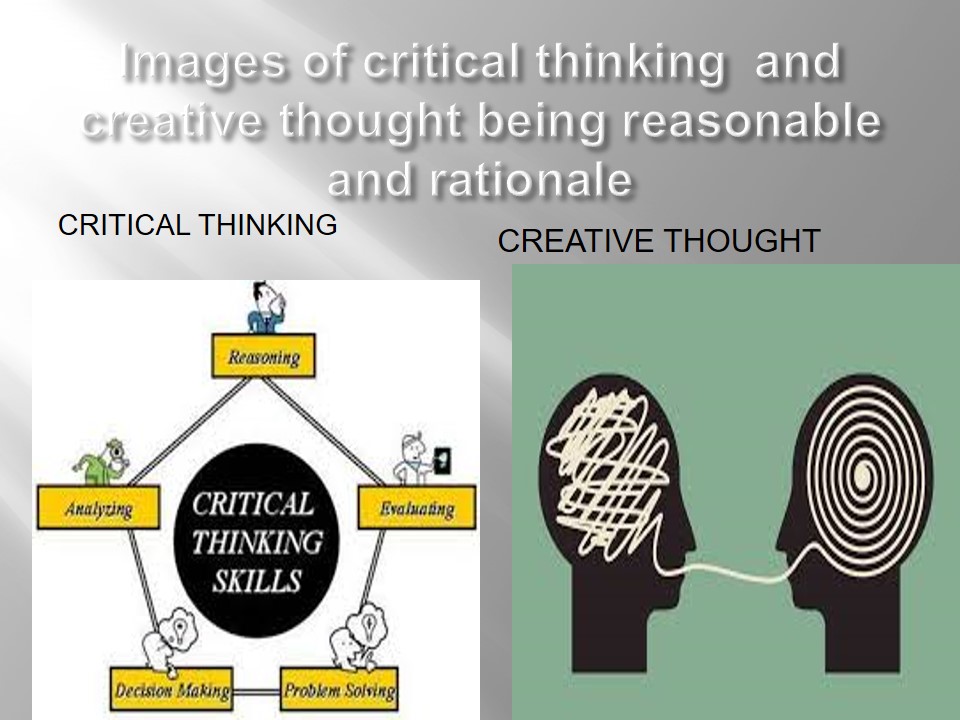
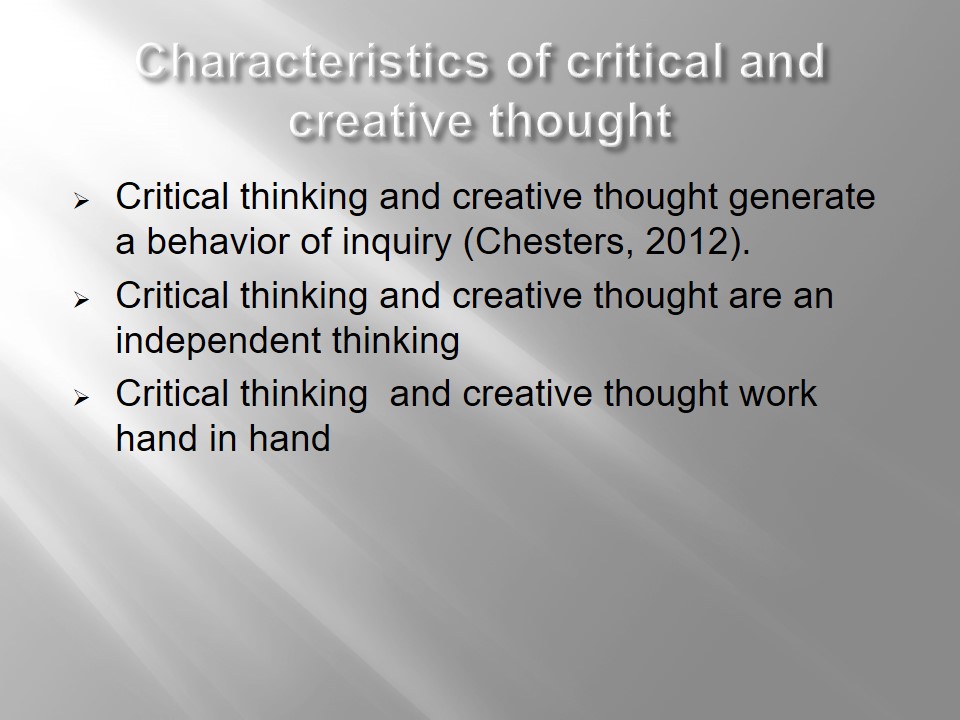
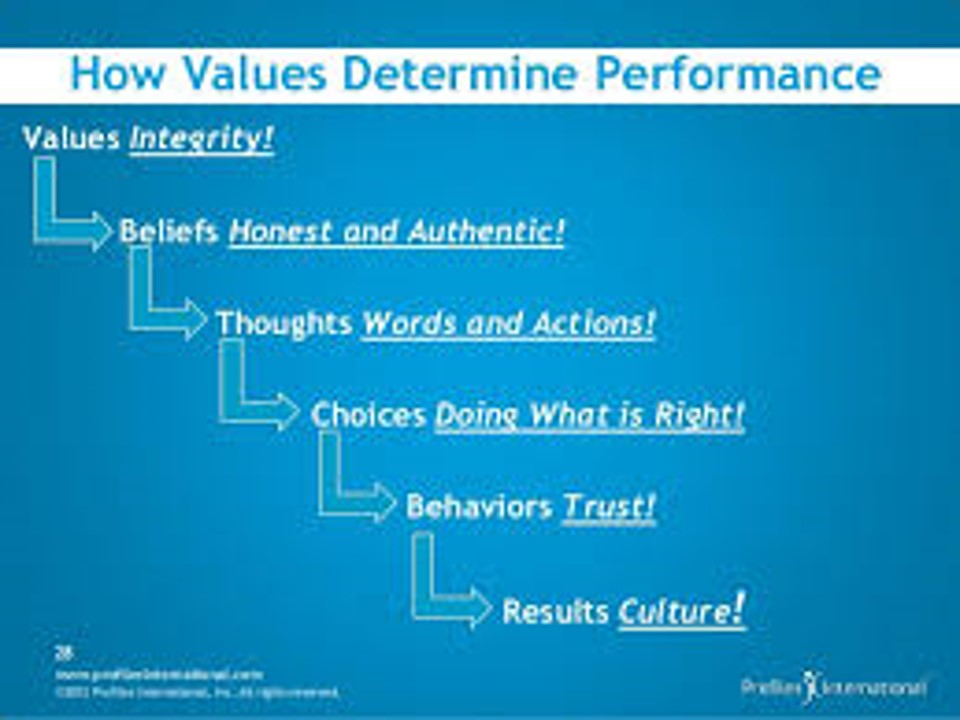
Why is Critical Thinking Considered as a Higher Levels Of Thought
- Critical thinking are regarded as high levels of thought because of the following reasons.
- Critical thinking forces students to examine issues from different perspectives.
- Critical thinking enables students and other concerned parties to reflect on their thought after the completion of an exercise.
Critical thinking is considered as the high levels of thought because individuals examine issues from a different perspective. An example is that when faced with the issues of war, critical thinkers will consider all the possible courses of the war without basing on a single idea (Thayer-Bacon, 2000).
Moreover, after completion of tasks, critical thinkers reflect on the decisions raised to reach the results, outcomes, and the issues that may pose a challenge (Jones-Devitt & Smith, 2007).
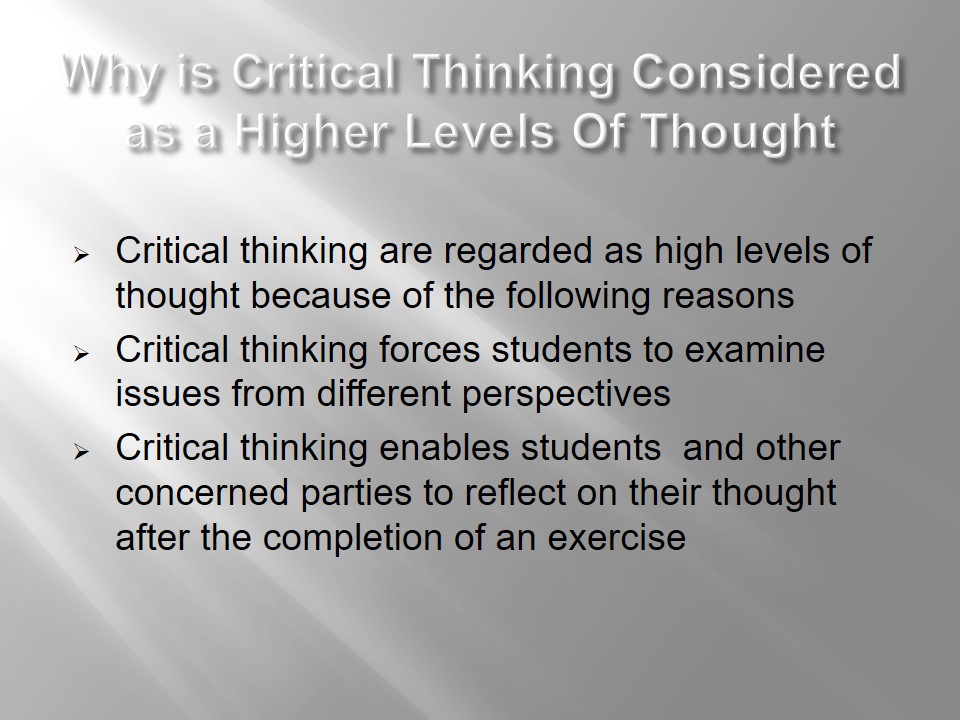
Critical thinking as higher levels of thought
- Critical thinking is also used for the purposes of deductive reasoning. An example is that since all students are borders, I am a student therefore I have to be a border.
- Critical thinking also promotes both divergent and convergent thinking. An example of convergent thinking is the use multiple choice questions in school whereas divergent thinking involves alternative uses of test and user test.
- Critical thinking also promotes the ability to think in a balanced manner. An example is weighing options before coming to a conclusion.
- Critical thinking also prevents an individual from falling into mental deterioration and dementia. An example is that one is able to think deeply into issues and find an effective solution without being stressed.
- The skills for critical thinking are necessary for the benefit of citizens practicing democracy in their nation. An example is that they think cautiously on policies and leaders to implement and select respectively.
Critical thinking encourages deductive reasoning as it enables one to make a general assumption that leads to the conclusion of a statement. This enables an individual to think deeply before making such statement as the outcomes may either be biased or no (Thayer-Bacon, 2000).
In addition, it promotes both divergent and convergent thinking as it enables individuals to raise questions and solutions through divergent thinking and finally narrows them down through convergent thinking. When one thinks divergently, numerous solutions are offered, but when the thought opposes solutions presented, the entire process is examined and only one solution selected out of the many.
Critical thinking promotes the ability to think in a balanced manner because through it, one is able to avoid issues related to prejudice as the general solution raised based on a number of questions that have been put into proper consideration (Jones-Devitt & Smith, 2007).
In addition, when one thinks creatively mental deterioration and dementia issues are avoided as numerous solutions are raised towards the problem at hand. Lastly, critical thinking skills are of extreme importance to the democracy of citizens in any given nation because through it citizens are able to think wisely about the policies they are supporting and the attitude or behavior of leaders they select to fill the different position in the government (Jones-Devitt & Smith, 2007).
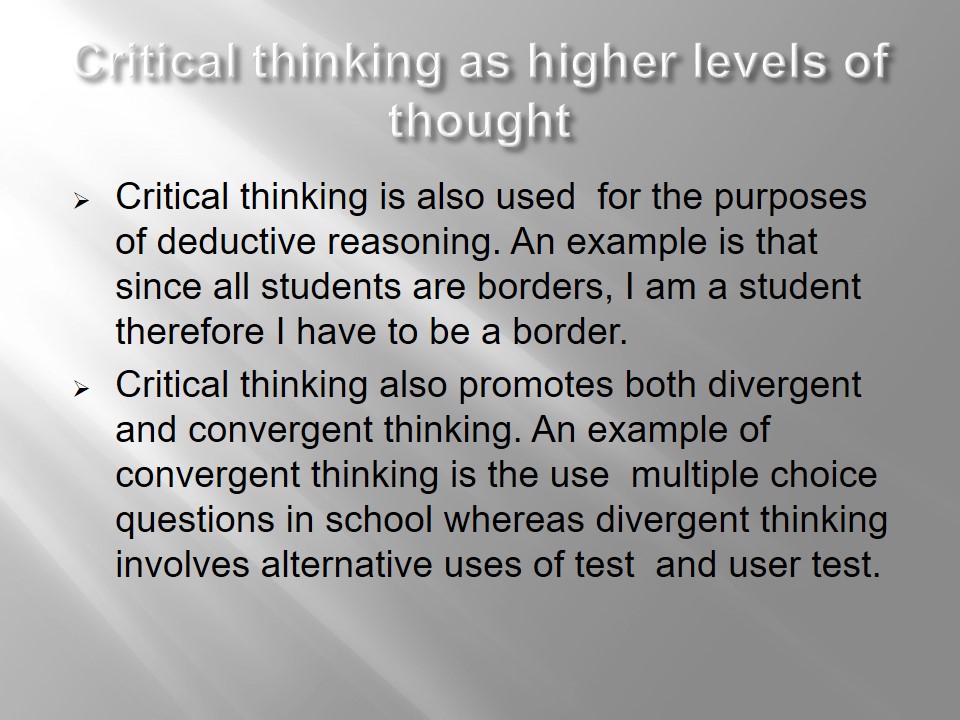
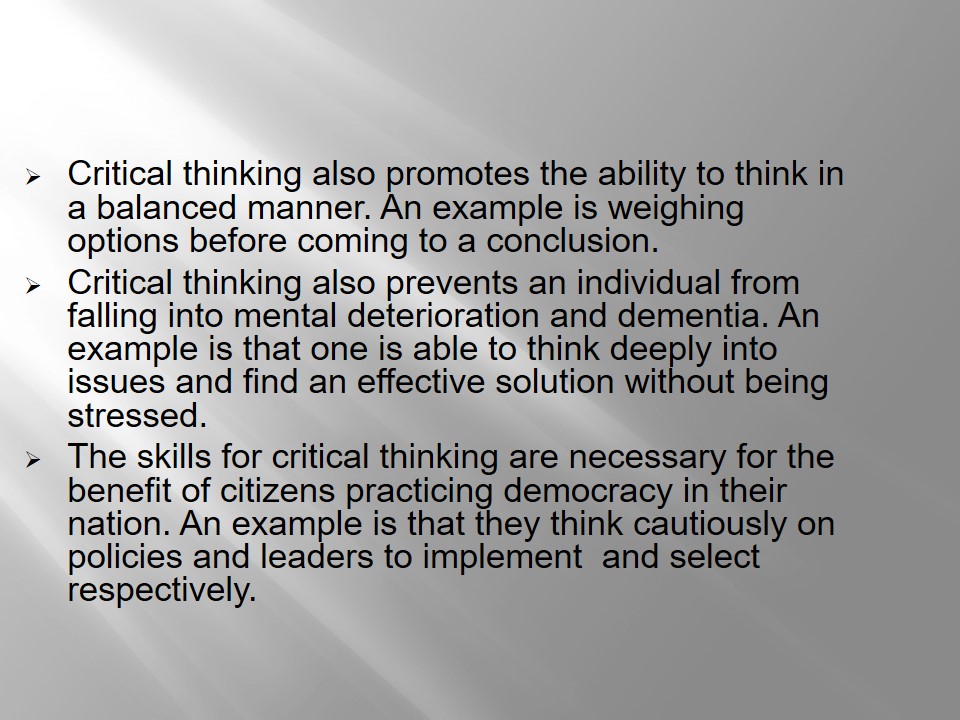
References
Brookhart, S. M. (2010). How to assess higher-order thinking skills in your classroom. Alexandria, Va: ASCD.
Chesters, S. D. (2012). The Socratic classroom: Reflective thinking through collaborative inquiry. Rotterdam: SensePublishers.
Ess, C. (2004). Critical thinking and the bible in the age of new media. Lanham, md: Rowman & littlefield publishers.
Harrington, N., & Terry, C. L. (2009). LPN to RN Transitions: Achieving success in yournew role. Philadelphia: Wolters Kluwer Health/Lippincott Williams & Wilkins.
Jones-Devitt, S., & Smith, L. (2007). Critical thinking in health and social care. Los Angeles: SAGE Publications.
Thayer-Bacon, B. J. (2000). A feminist redefinition of critical thinking: Constructive thinking. New York: Teachers College Press, Columbia University.